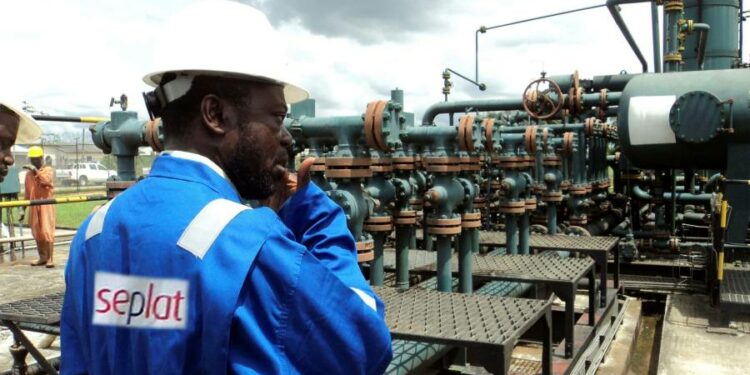Nigeria has approved the $1.28bn sale of four oilfields run by ExxonMobil to local producer Seplat Energy in the first in a series of planned divestments by international companies from the country’s troubled Niger Delta region.
President Muhammadu Buhari, who is also the country’s oil minister, authorised the sale on Monday after “considering the extensive benefits of the transaction to the Nigerian Energy sector and the larger economy”, a statement from his office said.
Exxon began oil operations in Nigeria in the 1950s and, alongside European rival Shell, was responsible for the creation of the oil industry that has become the bedrock of the Nigerian economy.
Oil production in the swamps of the Niger Delta in the south of the country has generated billions of dollars in revenues for the companies and the government but has also resulted in corruption, violence and criminality that international oil groups have found increasingly difficult to manage.
In response, ExxonMobil and Shell in the past two years have announced plans to end their onshore operations, while continuing offshore projects.
The planned divestments provide an opportunity for local producers such as Seplat to expand. But Exxon and Shell have also been criticised for leaving behind a swath of environmental, social and operational problems.
Shell’s planned divestment of its Nigeria assets has been put on hold pending the resolution of its appeal against a court order to pay $1.95bn of damages after an oil spill in 2019.
Seplat reached an agreement to buy Exxon’s shallow water assets in February but the deal appeared in doubt after the Nigerian National Petroleum Corp, the state oil company, secured a court order last month barring Exxon from selling the four licenses.
Exxon operates the permits in a partnership with NNPC, which had sought to block the transaction, arguing that it had a contractual right to pre-empt any sale.
Seplat, which is listed in both London and Lagos, welcomed Buhari’s decision, describing the deal as “a transformational transaction” that would create “one of the largest independent energy companies” on both stock exchanges. The acquisition will increase Seplat’s oil production by roughly 95,000 barrels a day, tripling its output. Exxon declined to comment.
Buhari’s office said the deal would also boost Nigeria’s ambitions to receive more foreign direct investment in the energy sector.
In the short-term Exxon and Seplat are expected to work together to boost production at the four fields, thereby helping Africa’s largest oil producer meet its Opec production quota of 1.8mn barrels a day, it added.
Nigeria has struggled with this target because of pipeline vandalism and theft in the Niger Delta region.











